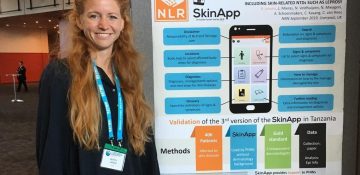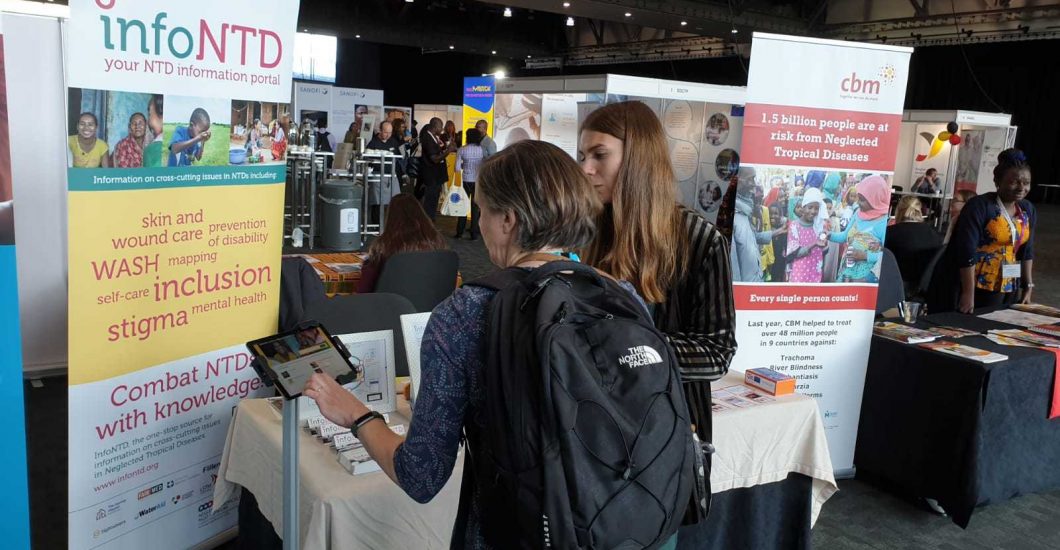Looking back at the NNN conference
The 10th NTD NGO Network (NNN) Conference took place in Liverpool, United Kingdom, 17 - 19 September 2019

The 10th NTD NGO Network (NNN) Conference took place in Liverpool, United Kingdom, 17 – 19 September 2019
With the theme: Our Vision Beyond 2020: Many Partners, One Voice, the NNN conference ran alongside the 11th European Congress on Tropical Medicine and International Health 2019 (ECTMIH) at the Arena and Convention Centre (ACC) Liverpool. NLR staff was present at both conferences to share experience and expertise on cross-cutting Neglected Tropical Disease (NTD) issues.
NLR contributions
At the ECTMIH we promoted the use of the SkinApp we developed. An award winning and effective detection tool that supports peripheral health workers recognizing the early signs and symptoms of skin diseases, including neglected tropical diseases and skin manifestations of HIV/Aids.
Dr. Wim van Brakel (NLR Medical Director and Chair of the DMDI Working Group) spoke on the cross-cutting issue of disease management, disability and inclusion. “People affected by NTDs have the right to holistic care. That is why we have set up the DMDI working group“. DMDI provides a unique and growing platform for engagement, shared learning, coordination, capacity development and advocacy for interested stakeholders.
The InfoNTD portal, initiated by NLR and American Leprosy Missions, was promoted through a information stand which gained lots of attention. InfoNTD is a search engine and database dedicated to cross-cutting issues in NTDs, providing access to 4,000 scientific papers and learning materials. It is mostly used by researchers, programme managers, M&E officers, policy makers, health professionals and many more people involved in the field of NTDs.
New and exciting ideas
Important elements of a successful conference is to get inspired by new and revolutionary ideas from people or organisations outside the own organisation.
The most unusual and thought provoking was the presentation by Dr Arianne Shahvisi, Senior Lecturer Ethics at Brighton & Sussex Medical School, who spoke about Ethics, human rights and NTDs, particularly podoconiosis. She spoke about Global health inequality, the fact ‘Money is flowing from the South to the North, instead of the other way around’, and that people have a right to shoes (to prevent podo). She argued that ‘NTDs are a social category; they have no scientific basis in common’.
Additionally, a strong message from Dr. Mwelecele was food for thought: “For MDA diseases there is a disconnect. We need to have better policies that can allow us to deliver to people. Countries need to see what is not working. What do they consider a ROI? All other investments will be incomplete if, after MDA drops out, it is without touching people’s lives.”
The importance of involving persons affected in our work was emphasised through this meeting. In that sense it was a very informative conference. It is not of this time anymore to only focus on people affected by just one condition, but attention should be paid to all that are otherwise excluded from vertical programmes/government programmes etc.
In short, a successful congress and NLR will be present next year.
